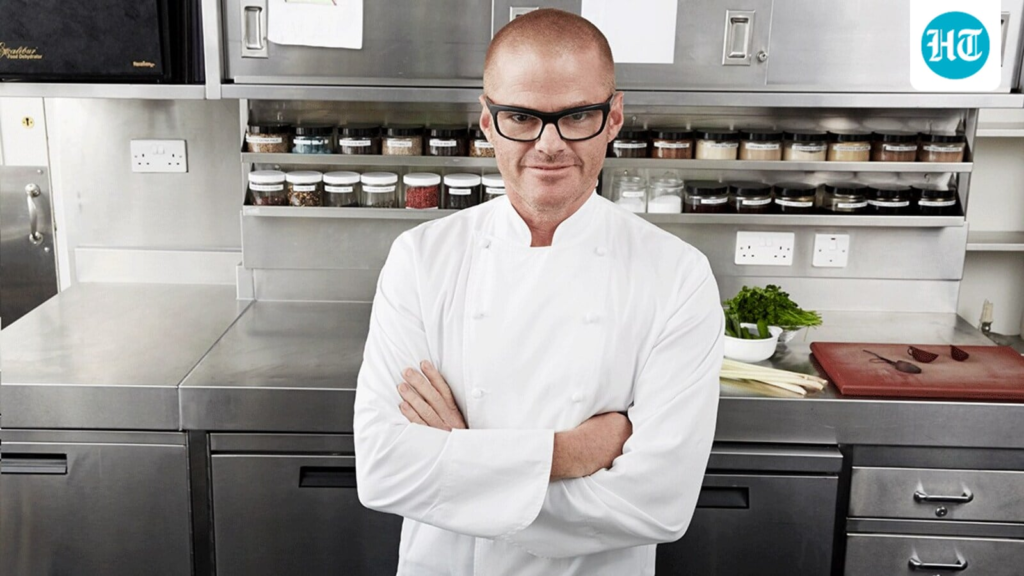
Heston Blumenthal is probably the most influential chef in the world to still run a restaurant. The only other chef who could be mentioned in the same sentence, Ferran Adria, gave up on El Bulli, the restaurant that made his reputation, 14 years ago. Only Blumenthal is still at it, changing the rules and transforming the way we think about food.

I thought of Blumenthal for two reasons this week. The first is that he was honored at San Sebastián’s prestigious Gastronomika conference for his enormous contribution to food.
This is a huge deal by any standards. But as foodies will tell you, in chef terms, it is almost unmatched because the Spanish, who replaced the French as the leaders of global cuisine (and now have the Scandinavians nipping at their heels), don’t really think a lot of British chefs. They don’t believe Britain has made any significant contribution to global gastronomy (and they may well be right) and don’t bother too much with British restaurants.
The exception has always been Heston Blumenthal.
Though in the early years of this century, the press invented a rivalry between Adria and Blumenthal, the two men were friends and worked together to extend the boundaries of kitchen techniques.
Their styles were different though. Adria was fascinated by science in the kitchen. So was Blumenthal but, unlike Adria he was also fascinated by the relationship between food and those who ate it: Their state of mind, their memories, their moods etc.
Most chefs view a dish in isolation. Blumenthal made the daring suggestion that perhaps food tasted different depending on how you were feeling when you ate it or the memories it evoked in you. So perhaps food was like quantum physics in the sense that you could not predict exactly how people would always respond to it. There were so many variables that taste was just one part of the equation. (He popularized the term Quantum Gastronomy.)
Even the name of a dish could influence responses. Call a dish smoked salmon ice cream and people would say it was saltier than it really was because they thought of smoked salmon as being salty. Change the name and the responses would be different again. In one of his most famous dishes, Sound of the Sea, diners were given headphones to listen to the kinds of sounds they would hear by the seaside while eating a seafood dish. When people did not have that aural stimulation, they responded differently.
Eventually I think everyone came around to Blumenthal’s perspective. I remember attending a talk by Ferran Adria at Singapore’s Gourmet Festival in 2010, where he said that how much you enjoyed food was a function of how happy you were at the time you ate it. Examine your memories of good food, he said, and they will almost always be memories of times when you were already happy. This was Blumenthal, chapter and verse.
Over the last couple of years, Blumenthal has hardly been out of the news because he has spoken at length about mental health and about his own experiences with attention deficit disorder and bipolarity. He has been brave in talking about his own problems, and his words have not only given strength to those with mental health issues but have also helped the world understand that high achievers like himself often live life on the edge.
But through it all I wondered if perhaps his massive contribution to the world of gastronomy was being buried under the mental health stuff.
I don’t have to worry. As The Fat Duck, his flagship restaurant in the English village of Bray, celebrates 30 years, the tributes to his culinary genius have been flowing in. Gastronomika was just one part of it. The British press, YouTube and the internet are full of features on Blumenthal.
But I think that it is somehow typical of Blumenthal that while his legacy is being celebrated, he is already working on something new: Mindful eating.
The idea came from Heston’s own experiences. The medication he has to take for his bipolar issues has had the unfortunate effect of making him put on weight. He is, understandably, sensitive about this, especially as he has always been the sort of person who exercises and looks after his body. (When he last appeared on MasterChef Australia, people worried on social media that he had become too thin.)
The doctors have put him on Mounjaro to help counteract the effects of his medication and the weight is beginning to disappear. But when Blumenthal coped with the effects of Mounjaro, he began to think: As more and more people went on weight-loss drugs like Ozempic and Mounjaro, would they still be able to eat the multi-course tasting menus that most Michelin three-star restaurants specialize in? He knew that he couldn’t. Not after Mount Jaar.
Ironically, the trend towards tasting menus was pioneered by Adria at El Bulli where everyone had to eat the same menu.
When The Fat Duck first opened it did an à la carte menu but over time it switched to a tasting menu. Others followed suit. I am not a fan of tasting menus myself, but I find that it is now impossible to go to a well-regarded restaurant and be able to order à la carte.
Blumenthal recognized that public preferences were changing. So, he first tinkered around with the traditional tasting menu and did a topsy-turvy menu where the dessert was the first course. Then he introduced a much shorter tasting menu and lowered prices. Eventually, the Duck has done the unthinkable and introduced an à la carte menu after 20 years. The stated purpose is to celebrate the 30th anniversary and to give guests a chance to enjoy such iconic dishes as the snail porridge. But we will have to see if the à la carte stays, which it might.
Blumenthal calls this mindful eating which makes sense. In the age of Ozempic and Mounjaro when people can only eat smaller quantities, they will eat more carefully choosing only those dishes they really enjoy.
Almost every single thing that Blumenthal has done has become a trend. So, is his focus on mindful eating going to spell the end of the interminable multi-course tasting menu? Almost certainly, yes. We will now get smaller menus and possibly a switch to à la carte at many restaurants.
As Gastronomika and the emphasis on mindful eating both happened at roughly the same time, I was struck by the irony. On the one hand, the world was celebrating the genius of a man who had created such delicious food. And on the other hand, he was actually helping us eat less.
But with Heston, the two are not contradictory. As brilliant a chef as he is, he has always focused on the relationship between food and the person who eats it. And if he now thinks we are ready to eat more mindfully, that makes perfect sense.




